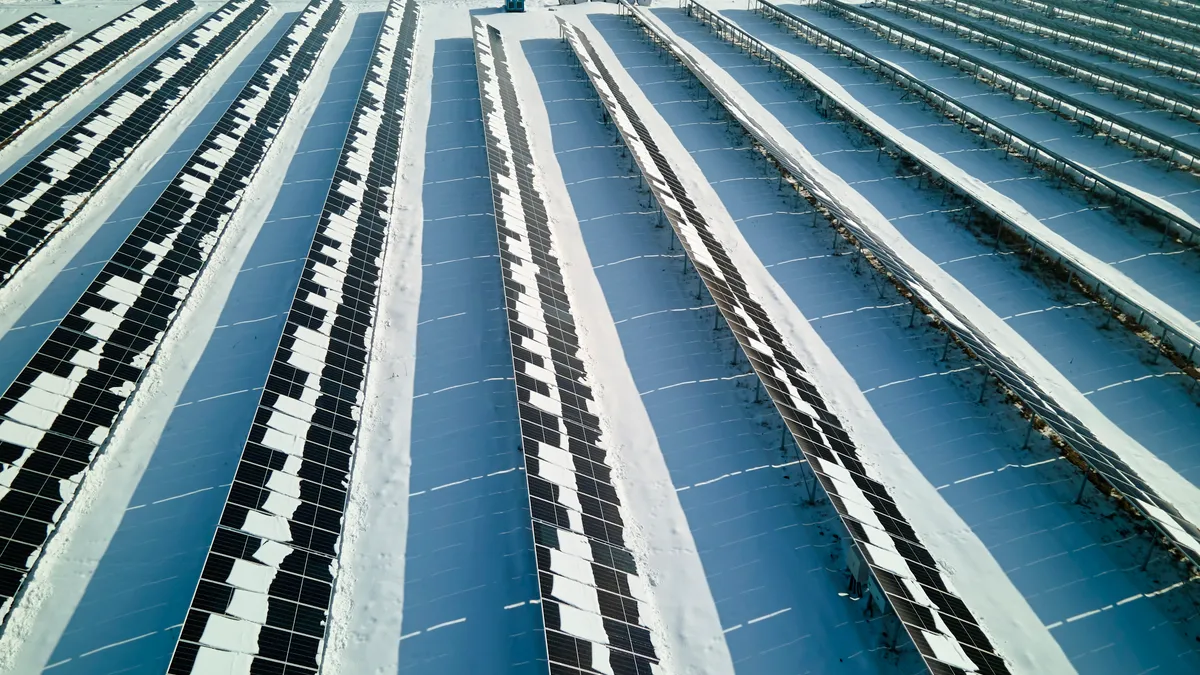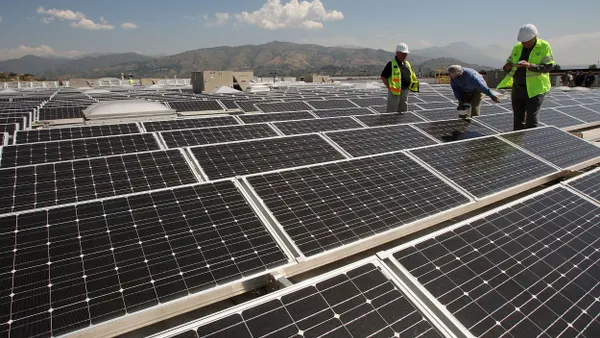Dive Brief:
-
Renewable energy markets may have experienced some turbulence in recent years, but those challenges have only served to make NextEra Energy an even stronger company, executives told investors during a Thursday earnings call.
-
The Inflation Reduction Act is a key growth driver for the company, but the upcoming federal elections are creating uncertainty around utility clean energy plans. However, NextEra Energy CEO John Ketchum downplayed the possibility that Republican lawmakers would repeal the Inflation Reduction Act if former president Donald Trump is re-elected in November.
-
Ketchum pointed to other key areas of growth for the company, with NextEra Energy Transmission securing contracts to build transmission projects in the PJM Interconnection, California Independent System Operator and Southwest Power Pool footprints that will roughly double the size of NextEra's transmission investments. The company also expects to see rapid growth in electricity demand from data centers supporting generative AI, and has attracted financiers interested in buying NextEra Energy tax credits.
Dive Insight:
NextEra Energy may stand to benefit from IRA benefits more than any other utility, according to Edward Jones analyst Mike Doyle. But Ketchum said he doesn’t share investors’ concerns that the 2024 election and potential political upheaval will impact NextEra’s development plans.
“We’ve never seen a change or repeal of tax credits, no matter what form they have taken,” Ketchum said, adding that the company’s IRA-incentivized projects have mostly benefited Republican-led states. “When we build a project...it’s a complete turnaround for these communities,” he said. “These are 180s for these rural communities and make a huge difference in their viability going forward.”
NextEra Energy shares ticked upward after Thursday morning's earnings call, at which the company reported better-than-expected quarterly earnings and announced that the company plans to invest some $1.9 billion in competitive transmission projects through 2027. The company’s shares have fallen about 21% in the past six months, with Doyle writing that the recent sell off did not seem to take into account the company's positive attributes.
“We believe the disruption over the last two years has made NextEra Energy an even stronger company,” Ketchum said. “Our business model is more resilient. Our development platform is even more advanced. And our supply chain is more diversified than it ever has been. Bottom line — we believe NextEra Energy is well-positioned headed into 2024.”
NextEra Energy Partners, which owns and operates clean energy projects, also announced plans to repower 245 MW of wind facilities through 2026 — an investment the company plans to fund either through conventional tax equity financing, or via its budding transferable tax credits business. The company transferred $400 million in tax credits in 2023, NextEra Chief Financial Officer Kirk Crews said, building relationships with multiple parties that could buy additional tax credits in the future.
The company has also seen increased demand for electricity from data centers and has 3 GW of projects in the works for data center customers, according to Rebecca Kujawa, president and chief financial officer of NextEra Energy Resources, NextEra’s wholesale and project development arm. She characterized the U.S. Treasury's decision to require hourly matching for hydrogen projects as unfortunate, but said that she remains excited to pursue this potential line of business.
However, analysts including Doyle noted that the company's backlog of renewable energy projects shrank in the fourth quarter of 2023.
Kujawa told investors that the company had removed some projects from its rolls after quotes for interconnection costs came in higher than expected. It is likely, Kujawa said, that those projects will return to the backlog once NextEra works through the interconnection issues.














